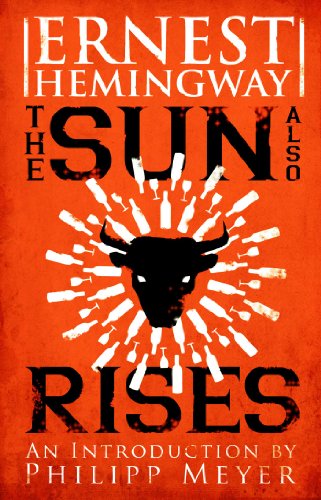

His immediate circle consists of two English people, Lady Brett Ashley and Mike Campbell, and a fellow American journalist and author, Bill Gorton. Jake and his entourage represent the disenchanted postwar generation in Paris during the 1920s. Despite his subsequent literary successes, Graves remained permanently alienated from the complacent middle-class values he almost died defending and lived most of the rest of his life in a self-imposed exile from England. By the war’s end, he was radically different from the naïve young man who had believed he was off to France on a lark. At the Battle of the Somme, Graves was so severely wounded that he was presumed dead, and his family was so informed.

After the initial advances and retreats, both sides settled into a prolonged struggle featuring bloody encounters and often indecisive skirmishes, where one side or the other would emerge from trenches to gain or lose a little slice of ugly terrain. The young Graves marched enthusiastically off to battle, as if he were to engage in the greatest cricket match of his life, 3 only to discover a reality he never dreamed possible. The title of Robert Graves’s autobiographical Good-Bye to All That (1929) effectively conveys what the war turned out to be and how it affected the generation of 1914 as well as those who would follow. And, just as with Jake Barnes, the hero of The Sun Also Rises, there was a young soldier “que la mitraille l’avait cruellement frappé dans la virilité” (38). To be assigned a bed in “La chambre de Revaud,” it was required to have “ des choses curieuses extraordinaires, un petit boyau crevé, … ou la moelle épinière déboitée, ou encore un de ces cas ‘que le crâne est embouti ou que l’urine ne sort plus là où elle sortait avant c’te guerre’” (12–13 emphasis original). Their lives at the front had marked them psychologically – “Leurs voix étaient celles de jeunes hommes, leur experience militaire celle de vieillards” (8) – while their wounds had left permanent physical scars that were sometimes the subject of macabre humor. Civilisation describes the various reactions of decent, ordinary men to a level of chaos and destruction the world had never witnessed, “ces Français dont le monde connaît trop mal et la grandeur d’âme, et l’indomptable intelligence et la touchante naïveté” (9). In no case is the poilu’s behavior, be it strong or weak, subject to second-guessing or scorn. Civilisation is a fictionalization of Duhamel’s experiences as a field doctor during World War I it consists of a series of vignettes that describe French soldiers in their heroism, misery, and fear. Yet in the interwar period he was quite well known in his native France, winning the Prix Goncourt for Civilisation (1918) and eventually being elected to the Académie française.

Georges Duhamel (1884–1966) is largely forgotten today.


 0 kommentar(er)
0 kommentar(er)
